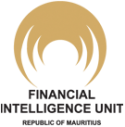National Risk Assessment
In line with FATF Recommendation 1 which requires countries to identify, assess and understand their money laundering and terrorist financing (ML/TF) risks and take action, including designating an authority or mechanism to coordinate actions to assess risks, and apply resources aimed at ensuring the risks are mitigated effectively, Mauritius issued its first National Money Laundering and Terrorism Financing Risk Assessment (NRA) Report on 29 August 2019.
Launched in January 2017, the NRA exercise was carried out using the National Money Laundering and Terrorism Financing Risk Assessment Tool developed and provided by the World Bank. The aim of the NRA was to identify, understand and assess the ML/TF risks faced by Mauritius. It paved the way to the implementation of a risk-based approach to combating ML/TF activities, thus making relevant stakeholders more effective in their efforts. The NRA results provides valuable guidance to articulate policies and strategies to address the risks identified and to allocate resources to areas that have the greatest impact in the fight against financial crime.
The FIU was responsible for the coordination of the project with the support of the World Bank experts and the involvement of all key stakeholders. The project was undertaken under the aegis of the Ministry of Financial Services and Good Governance in accordance with Section 19D of the FIAMLA.
The main objective of the assessment was to devise an effective risk-based AML/CFT regime through an efficient allocation of resources and the adoption of measures which will prevent or mitigate ML and TF on the basis of identified risks. For that purpose, the following factors were assessed:
- the scale and characteristics of the proceeds of criminal activities from both internal and external sources;
- the scale and characteristics of terrorism financing in Mauritius;
- the weaknesses or gaps in Mauritius’s ability to combat ML and TF; and
- the ML weaknesses or gaps arising from the financial services sector as well as designated non-financial businesses and professions (DNFBPs) in the country.
As per the NRA, the overall ML risk for Mauritius is Medium-High and the overall TF risk is Medium.
Risk Assessment for the NPO sector
In line with FATF Recommendation 8 and Immediate Outcome 10, a risk assessment for the NPO sector was commissioned by the Government of Mauritius as part of its commitment as a member of the FATF Global Network to combat the financing of terrorism. The NPO risk assessment exercise was completed with support from the EU-funded Global AML/CFT Facility Consultants who developed the methodology for the assessment and provided technical support. As per the Executive Summary of the Terrorist Financing Risk Assessment for NPO Sector in Mauritius, the overall inherent TF risk of NPOs in Mauritius was assessed as Low-Medium.
Risk Assessment for Virtual Assets and Virtual Assets Service Providers
In line with FATF Recommendation 15 which requires countries to identify, assess and understand the ML/TF risks emerging from Virtual Assets (VA) activities and the activities or operations of Virtual Asset Service Providers (VASPs), Mauritius conducted its National ML/TF risk assessment of VA & VASPs in 2021, further to which the Virtual Asset and Initial Token Offering Services Act 2021 was enacted.
According to the report, 12 different VASP channels (namely, ‘Fiat to Virtual’, ‘Virtual to Fiat’, ‘Virtual to Virtual’, ‘Hot wallet’, ‘Cold Wallet’, ‘Fund management’, ‘Compliance, Audit and Risk Management’, ‘Platform Operators’, ‘Investment into VA-related commercial activities’, ‘Peer-to-Peer’, ‘Platform to Business’ and ‘Merchants’) applicable to only three sectors (namely, the Banking Sector, the Non-Bank Financial Institution sector and the Informal sector) were identified, with some channels cutting across more than one sector. The combined ML/TF residual risk across the 12 channels was rated High to Very High.
